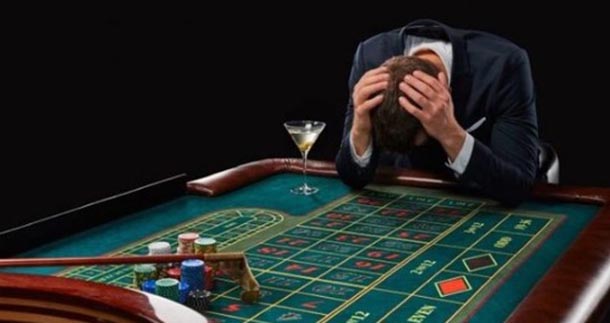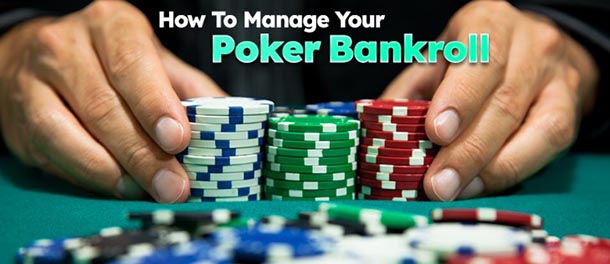Basic gambling concept are needed if you want to become a long term winning player. It doesn’t matter if its poker or sportbook-betting you are playing at. If you don’t know what you are doing you will end up broke.
Below we teach you the basics. Gambling is a lot of fun and it can give you a nice profit to! We believe that you need some knowledge about gambling theory to be able to succeed at the poker tables.
Poker – Skill or Luck?
Why a chapter about gambling in a site about poker? The reason is that Poker is gambling. You bet your money and hope to win. But what does this mean, is poker just a game of luck like a lot of other games? Both yes and no. The luck factor lays in the fact that you don’t know what cards that is still in the deck, that could be the next card on the board, and you do not know your opponents cards. You do not have all the information you need to make a perfect decision. You can compare this to chess where you see the board and both you and your opponent have the same information, and can make one right decision.
Poker in the short run – luck
The luck factor in poker are great in the short run. The next card could help you or beat you. And every card are about 2% to show on the next card. So as long as you don’t draw dead (have no outs to win) you can get lucky and beat anybody. Even a beginner poker player could beat the world champion, and that is one of the things that make poker so interesting. If you get outplayed you always have the chance to win on pure luck.

Poker in the long run – skill
Most people says that poker are a game of skill. And they are right! In the long run. The reason are simple. If you continue to make the right decision time after time, the luck factor wont have a chance. Therefore a better player (one that makes the right play more often) will beat a weaker player. The goal of poker in the long run is to take the right decisions. Decisions that lays as close as possible to the decision you would have made if you know the cards your opponent holds.
You wont get the chance to see your opponents cards and therefore you need tools for coming up with the best decision you can given the information you have. The text below covers what you need to know about some gambling specific topics when you play poker.
Gambling for Money
If you decide to play for money at sports, casino or poker you need to promise yourself something first: Never ever play with money you cant afford to lose! If you cant keep this promise you need to quit at once. When you decided that the money you have is money you can afford to lose, then you can start gamble and hopefully making money. The rule applies to buying and selling stocks at wall street!

Money management
In business it has been a fact for a long time: if you cant pay your short term debts you going to face a bankruptcy. The same principle goes for gambling. Therefore you need to choose the games according to your wallet. Make sure you pay of your loans and bills first. Then go into the casino or poker room!

When you gamble, even if you in the long run makes good decisions (se below) you will face times when al your gambles goes wrong. To be able to withstand those bad times you cant bet to much at each single bet. A lot of gambling experts advocate that when you find a bet you are very confident about you only bet 6% of your total budget. I say bet less. When you play poker and sit down at a cash table or buy in to a sit & go tournament I think you should have at least 30 times the money as you buy in for. if you look at a single bet at sportsbetting I say bet max 2%.
When you play for money you should always play at a level you feel comfortable with. It doesn’t matter what the game is, if you play at a to high level you will be scared, nervous and not make the right decisions. For example if you play poker at a cash-table that is just to high. You will fold to much and you wont dare to make a bluff. Its just to stand up and walk (or click if its online) over to a table with a lower level and play your own game.
Gambling and Expected Value
Gambling is all about making decisions. And you need to try to make the right decision as often as possible. But how should you what to do?
One way to get a structured way of thinking about your gambling is expected value (EV). The basic idea is simple, but without the knowledge you will hardly profit in the long run. The expected value is the amount you expect to win or loose on average when you place a bet. EV can be used playing poker, casino, horses or other sports betting. You should always choose the bet that gives you the highest EV (except in poker-tournaments were you need to conserve your chips, so sometimes). You should now that the total of EV is always 0. And when you profit someone else loses! And if you don’t bet of course your EV is 0.
Some simple examples will give you the idea about how to think. The odds are written in the European way of thinking.
Sports betting
Say that you think about playing at a soccer game. You need to take a lot of different variables into consideration, like historical statistics, injuries and so on. When you have done this you try to think about how likely each result is. In a game it can be a winning team or a tie. You can choose 3 different plays. You get down to that you think that the game will end with a victory for the home team 6 times out of 10, a tie 3 and the team playing away only 1 time. What odds do you need to place a bet? Well, if you play for a home victory you will be right 6 times out of 10 so you need an odds of 10/1,67 to break even 6*1,67*1=10). If you get more than that you will profit. Say you find a odds that gives you 1,85 times your money. What would your profit be then? Say you play 10 times for a total of 100, you win 6 times giving you 6*1,85*10=111 and your EV (average winning) is 1,1.
BlackJack
Say you are playing black jack at the great casino-on-net and you get 7,4, the sum of 11, on your hand and the dealer is showing a 5. What should you do? You should double your 11 because your expected value is high. You will a lot of times hit your 21 and when you don’t the dealer will be busted a lot of times!
Poker
Poker is a little bit more complicated because you don’t have all the information. But it can still be simple. Say you are drawing to a nut-flush. You have four to a flush after your flop and someone in early position brings it in with a big raise, you are pretty sure that you will beat him if you only hit your flush, because the way the hand have been played is probably holding a straight or a high pocket pair. After his raise it cost you 40 dollars, all you have, to se the turn and river. Since you are all-in you do not need to worry about not getting to see the river. A lot of players were in the pot preflop but have folded to the 40 dollar bet from the early position. The pot is therefore 90 + 40 = 130. You can win 130 by putting in your 40. You will hit your flush about 35% of the times and that gives you a winning hand and a result of win in 130*35=455 and when you don’t you will loose your 40 dollars, which gives you 40*65=260.Your average profit is 195/100=1,95 per hand. So you want to gamble!
Gambling theory in real life
I would like to try to put these concepts together by using a TV show I have seen. A person had to make a choice. He had an offer from the Host to accept 2.5 million to quit playing and just walk away with his money. If we would like to continue gambling he had to pick one out of two boxes, one containing one million and the other containing five million. What should he do?
If you look into the Expected Value he should gamble. He has a 50/50-chance and he have to put 1.5 million in a bet that could give him 2.5 million extra. Very nice odds! If you could do this over and over again you should of course gamble. But what did he do and why?
He took the 2.5 million and stop playing. The reason is that he could only play once and if he was wrong he would end up with one million. Considering his private situation a 2.5 million would make a huge difference and therefore in his situation he was right to take the money. You could call this money management. Only play with money you feel that you can afford to loose.
If you take this with you into tournament poker you can learn a lot. Of course you should play when you get situation where you feel you have great EV. But remember that if you loose an all-in you will get kicked out and in some cases it could even be right to throw away AA or KK, just to get into the money or win a lot more!
